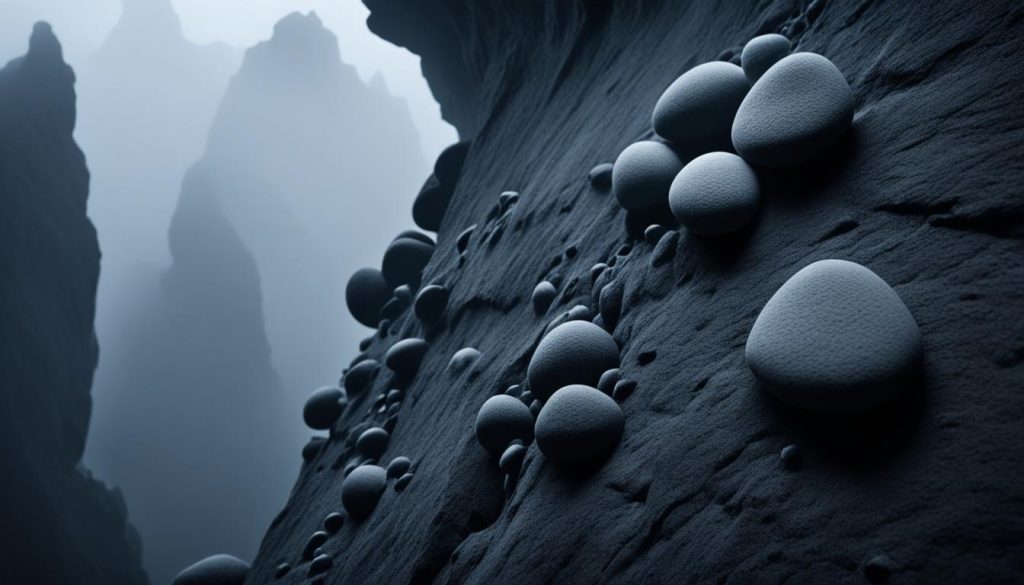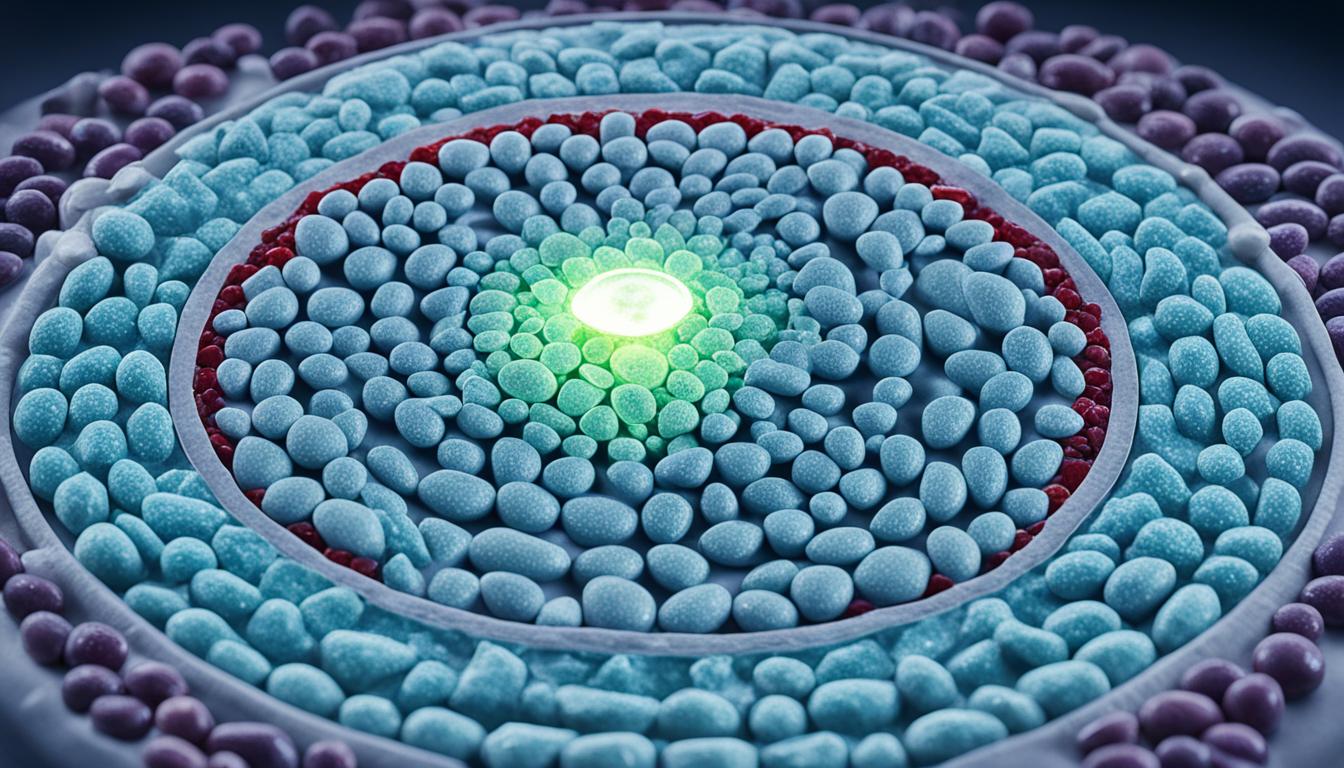Bladder stones, also called urinary tract stones or kidney stones, are hard minerals in the bladder. They make urinating painful and uncomfortable. These stones come from mineral salts in pee turning solid. Not peeing enough, infections, and genes can make stones more likely.
Symptoms include lower back or belly pain, weird peeing habits, and fever. Without treatment, they can cause infections and hurt kidneys. But, don’t worry! Treatments like medicine, surgery, and stem cell therapy are available. Stem cell therapy is exciting because it might fix bladder damage and help with pee problems.
In Thailand, people can get cutting-edge stem cell treatments for bladder stones.
Key Takeaways:
- Bladder stones are crystallized minerals that form in the bladder.
- Causes of bladder stones include dissolved mineral salts in the urine, decreased urine flow, urinary tract infections, and genetic factors.
- Symptoms of bladder stones include pain, abnormal urination, and fever.
- Treatment options for bladder stones include medical treatment, surgical intervention, and stem cell therapy.
- Stem cell therapy has shown promise in regenerating damaged bladder tissue and improving urinary function.
Causes of Bladder Stones
Bladder stones can form for many reasons. One big cause is the minerals in your urine, like calcium and oxalate. These minerals can stick together and form stones if the conditions are right. This process can happen when your body has certain health issues.
One big reason for these stones is having mineral salts in your pee. These salts can come from what you eat or your body’s own actions. Eating too much spinach and rhubarb, for example, can lead to calcium oxalate stones.
Sometimes, problems with how pee flows can lead to stones. If pee doesn’t flow right, it can get too concentrated. This makes it easy for stones to form. Things like infections, changes in pee’s pH, or issues with the urinary tract can all cause trouble.
Genetics can also affect if you’ll get bladder stones. If your family has a history of urinary problems, you might be more likely to get them. Also, people born with certain urinary tract issues are at higher risk.
Other things that can increase your risk include getting UTIs often, not drinking enough water, not moving much, and some medicines. UTIs can make the bladder a place where stones can easily form. Not drinking enough water makes your pee more concentrated. And not moving much or certain medicines can make pee flow problems worse.
Symptoms and Complications of Bladder Stones
Bladder stones vary in size and location, causing different symptoms. The most common symptom is pain in the lower back or abdomen. This pain can be constant or can come on suddenly and strongly, spreading to the groin.
Other signs include abnormal urination like dysuria, stopping and starting urination, and not being able to urinate at all. People might also notice cloudy urine and blood in the urine (hematuria). Fever and urinary tract infections are also common for those with bladder stones.
Without treatment, bladder stones can bring serious issues. These include urinary tract infections, not being able to urinate, and impaired kidney function. This could lead to kidney failure, either sudden or over time.

Bladder Stones Symptoms:
- Persistent or severe pain in the lower back or abdomen
- Pain radiating to the groin area
- Dysuria (painful or difficult urination)
- Intermittent urination
- Difficulty or complete urinary retention
- Cloudy urine
- Blood in the urine (hematuria)
- Urinary tract infections
- Fever
For a better quality of life, those with bladder stones should get treated soon.
Treatment Options for Bladder Stones
The right treatment for bladder stones can vary. It often depends on the size and where they are. Doctors might suggest medical treatment, a kind of surgery, or even stem cell therapy.
Medical Treatment: If the bladder stones are small and not troubling you, then medical treatment is a possibility. This approach might include pain relievers and medications to dissolve the stones. The aim is to let them pass naturally with urine.
Using medicine to treat bladder stones is simpler and less invasive. It works well for patients whose stones are small and not causing other problems.
Surgical Intervention: Bigger stones, or ones that cause problems, may need surgery. Today, there are less invasive surgical options compared to the traditional open surgery.
Procedures like ureteroscopy and extracorporeal shock wave lithotripsy (ESWL) are popular. Ureteroscopy uses a thin tube with a camera to find and remove stones. ESWL breaks stones into pieces with shock waves, making them easier to pass in urine.
Surgery is a good choice for those whose symptoms or complications aren’t relieved with medicine.
Stem Cell Therapy: A newer approach is stem cell therapy, which might regenerate damaged bladder areas and boost urinary function.
This exciting method could promote healing and improve bladder tissue damaged by stones. Scientists are studying stem cells’ ability to improve bladder quality.
| Treatment Option | Description |
|---|---|
| Medical Treatment | Pain medication and medications to dissolve small stones |
| Surgical Intervention | Endoscopic procedures like ureteroscopy and ESWL |
| Stem Cell Therapy | Regeneration of damaged bladder tissue for improved urinary function |
Table: Treatment Options for Bladder Stones
Each treatment has its pros and cons. So, it’s crucial to talk with a healthcare provider to pick the best approach for your bladder stones. With several treatments available, including innovative ones like stem cell therapy, there’s hope for those dealing with this issue.
Conclusion
Bladder stones can make you feel uncomfortable and impact your urinary health. There are good ways to treat this problem, though. You can go for medical treatment or surgery to get rid of bladder stones. Also, new treatments like stem cell therapy are showing promise. They could help heal damaged bladder tissue and make your urinary function better.
In Thailand, there are advanced treatments for bladder stones, including stem cell therapy. This gives hope for better urinary health and a better life. It’s important to get treatment early to avoid more problems and improve well-being for people with bladder stones.
If bladder stones are a problem for you or someone you care about, know that there are options. Stem cell therapy is an exciting possibility. Look into the advanced treatments in Thailand. Taking action early can lead to better urinary health.

